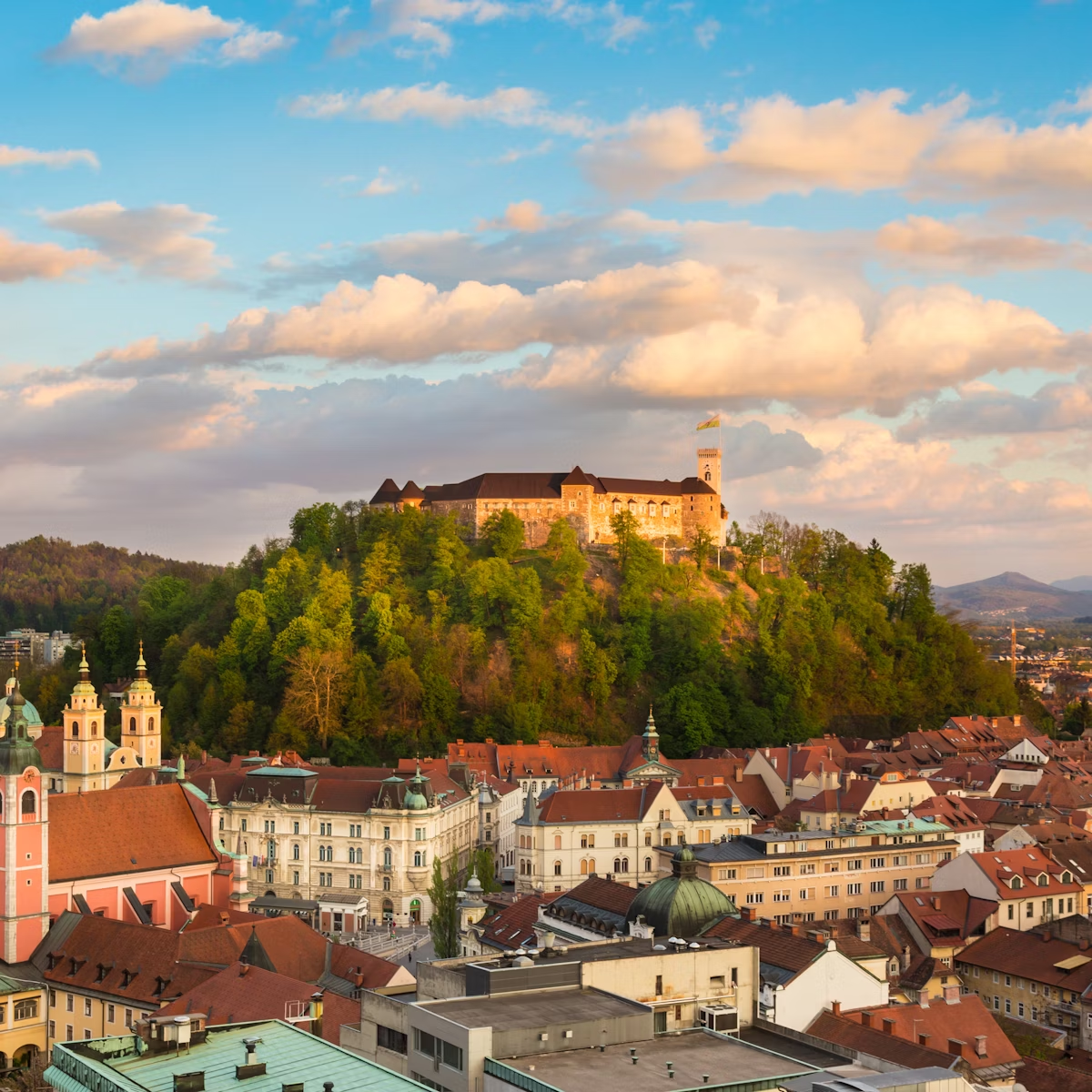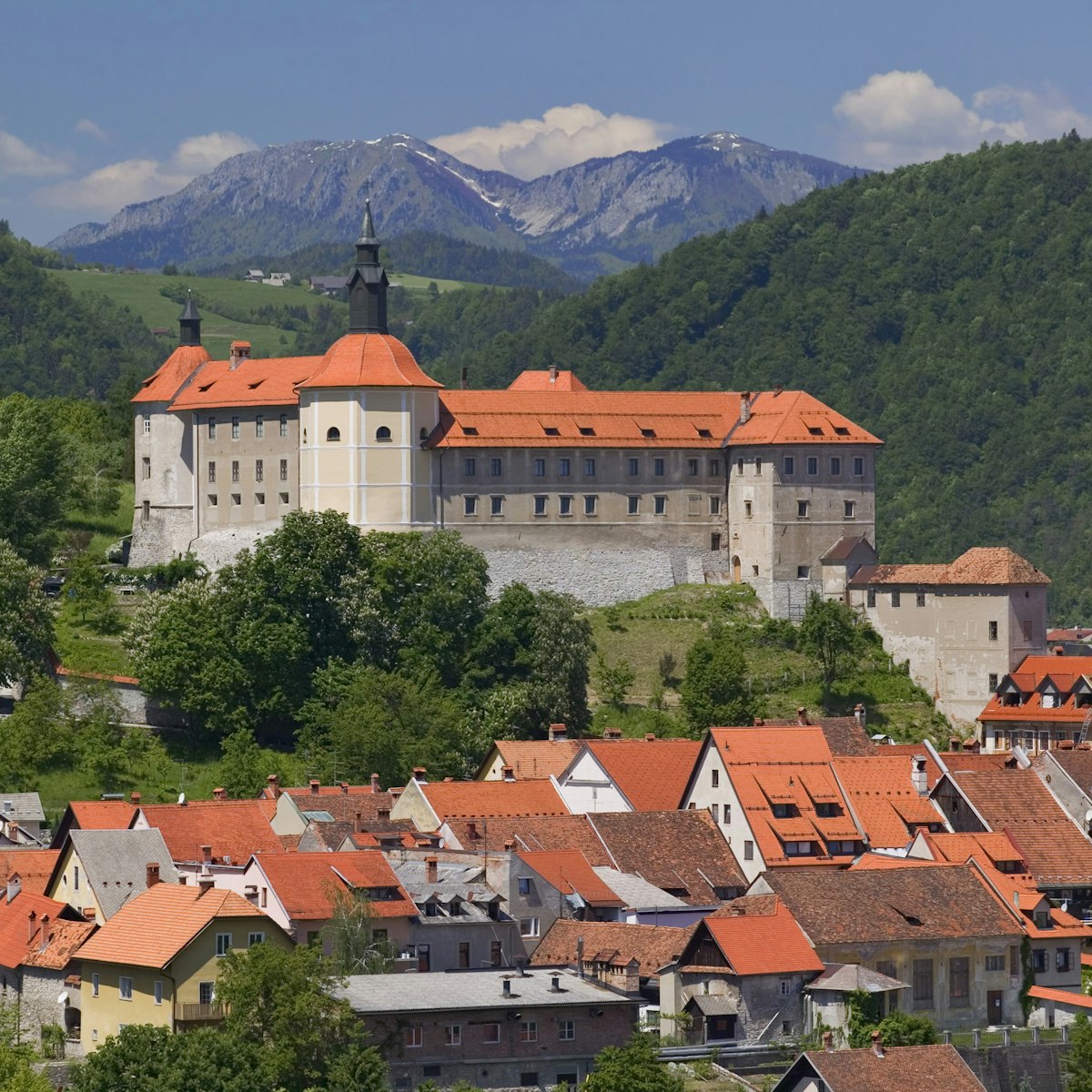This Renaissance-style castle was the home of celebrated 17th-century polymath Janez Vajkard Valvasor, who spent the most productive two decades of his life here. The castle, with its rectangular courtyard and three towers (the fourth burned down in the 19th century), now houses a museum devoted to the great man, his work and Slovenian culture.
Valvasor bought the castle in 1672 and installed his printing press, engraving workshop and extensive library here. Due to the enormous debts incurred in getting his magnum opus – The Glory of the Duchy of Carniola – published, he was forced to sell up in 1692.
Valvasor’s library is now used as a wedding hall, but his study, with its beautiful parquetry, black limestone columns and painted ceiling, is pretty much the way he left it when he performed his last alchemical experiments here. Other rooms contain examples of Valvasor’s original cartography and etchings, an original four-volume set of his famous work, a working printing press and a collection of hunting trophies, including a 360kg brown bear. The most interesting exhibits, however, are the ones that deal with folk dress, superstition and folk medicine.
Bogenšperk is tough to reach without your own transport. Half-hourly trains link Ljubljana with Litija (€3.44, 30 minutes, 31km), but it’s still another 6km south to the castle – much of it uphill.





